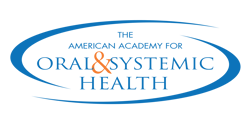Periodontal Pathogens Associated with Osteoarthritis and Periprosthetic Joint Infections of the Knee
Presented by: Garth Ehrlich, PhD
Original Publication Date: September 21, 2013
|
|
This course is available for CE Credit as a "Members Only" benefit. Not a Member? CLICK HERE to learn more about AAOSH Membership. |
Course Description:
Periodontal pathogens are associated with certain joint conditions, such as osteoarthritis and periprosthetic joint infections of the knee. The relationship between periodontal pathogens and these joint conditions is an active area of research, and more studies are needed to understand the precise mechanisms and implications fully. However, it underscores the importance of oral health and hygiene in potentially preventing or mitigating joint-related issues.
Learning Objectives:
- Understand the potential link between periodontal pathogens and the development or exacerbation of osteoarthritis, particularly about the role of chronic inflammation in the oral cavity leading to systemic inflammation and its impact on joints.
- Analyze ongoing research and studies exploring the mechanisms behind the potential connection between periodontal pathogens and osteoarthritis, emphasizing their role in systemic inflammation affecting joints, including the knee.
- Evaluate cases involving knee joint replacements and the potential complications of periprosthetic joint infections (PJI), focusing on the role of periodontal pathogens and their possible entry from oral infections or dental procedures.
- Create a comprehensive understanding of the complex relationship between periodontal pathogens, osteoarthritis, and PJI by considering the various factors and mechanisms involved in this connection.
Speaker Bio:
Garth Ehrlich, PhD, is the executive director of three Research Centers of Excellence in the Institute for Molecular Medicine and Infectious Diseases: the Center for Advanced Microbial Processing (CAMP), the Center for Genomic Sciences (CGS), and the Center for Surgical Infection and Bacterial Biofilm. He also serves as executive director of the Genomics Core Facility, which is a University-wide sequencing and bioinformatics service core. In response to the COVID-19 pandemic, Dr. Ehrlich founded and currently serves as executive director of the Center for Molecular Diagnostics and as section director of the Molecular Pathology Section, Drexel Medicine Diagnostics (a CLIA/CAP certified high-complexity clinical diagnostics laboratory).